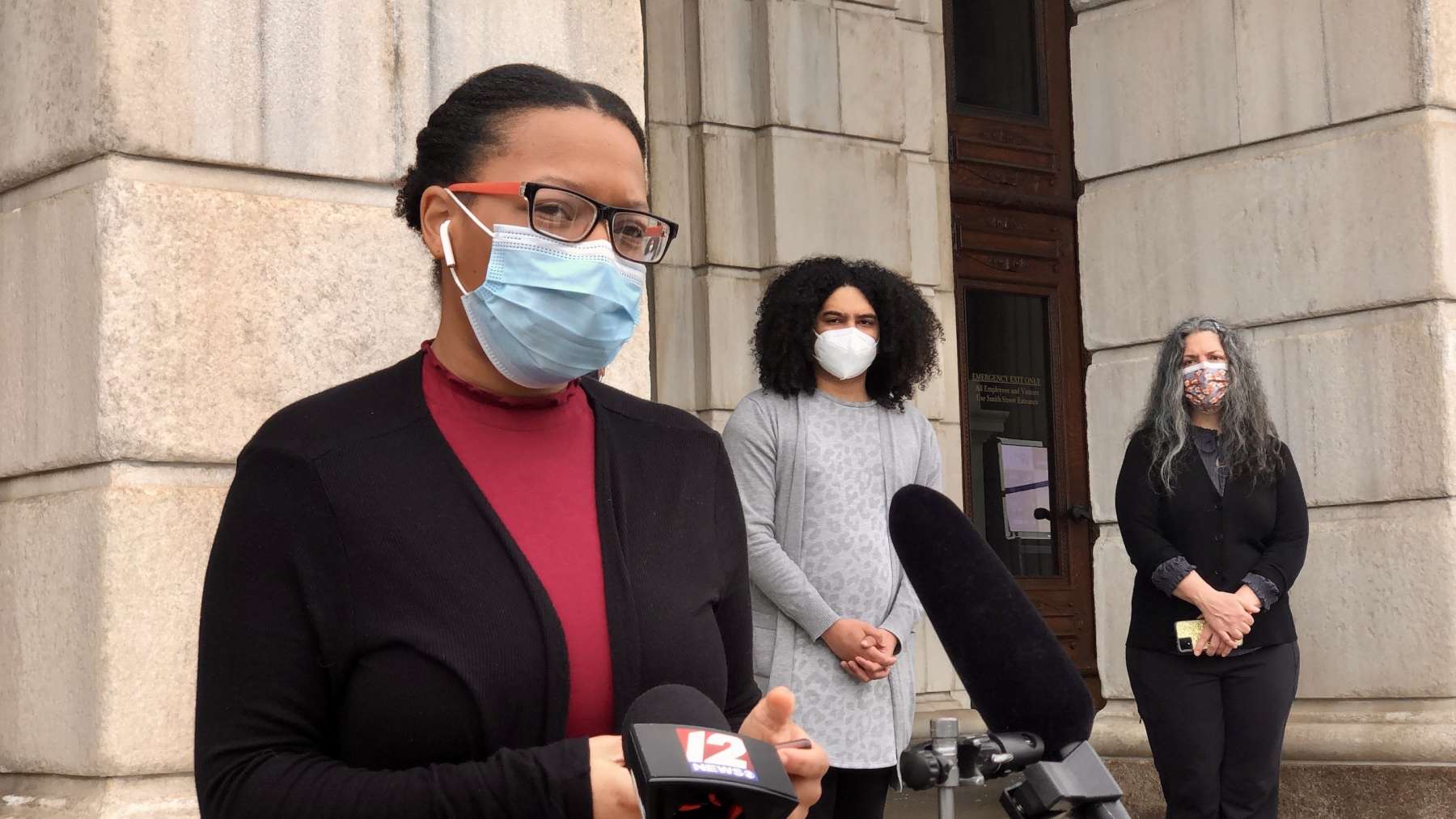Oped: The Weight We Bear
“We cannot continue to allow State leadership to use us to prop themselves up or further their own personal agendas, especially during times of crises. We must challenge the status quo, question their decisions, and hold them accountable…”
May 7, 2021, 8:00 am
By , and
On March 25th, 2021 a small group of community leaders and organizations stood on the Rhode Island State House steps calling for vaccine equity for Black, Indigenous, Hispanic/Latino, and Asian communities. The coalition was formed to mobilize around the urgent need to reduce the barriers to vaccine access that individuals within these racialized communities have encountered, though they are at higher risks for hospitalizations and deaths. While this call to action may be uncomfortable for some of our neighbors, it does not diverge from many calls to action that organizations and communities have made over the years when addressing the inhumane conditions that historically disenfranchised communities live in.
Prior to the event, little was done to provide access to vaccine related information. Communities, political leaders, and some institutions have acknowledged the significant equity gaps that exist between white people, and people of color, across all facets of our society. As a consequence, historically disenfranchised communities of color have developed a deeply rooted distrust of institutions that have not justly served them. And yet, while we recognize this history and our justified distrust, we consistently find ourselves asking this fundamental question…How do we keep communities of color safe? Without education and access to the vaccines, how could we expect people of color to willingly put their trust in a system that continues to cause them what feels like intentional harm?
In order to demonstrate that we could reduce the equity gap by resolving various access challenges that had gone unaddressed by the state, we focused on providing community interpreters, clinicians of color who could serve as vaccinators, community liaisons to augment onsite support and protect communities from harmful queries, and a uniquely designed free transportation system that was routed to nearby community centers. We were able to implement a community led registration process, which empowered community members to engage with registering organizations and community leaders to ask questions, and to make an informed health decision. Once community members confirmed that they wished to register, they were sent a vaccine registration link, which could only be used once. With these resources and a unique registration process, we handed the state, once again, a blueprint with the answers to the questions, which they keep asking.
All too often small grassroots organizations like the Alliance of Rhode Island Southeast Asians for Education, Direct Action for Rights & Equality, and Mount Hope Community Center are exploited by the same institutions that we rely on to keep our communities safe. We are expected to leverage the relationships and trust that our organizations have cultivated, while shifting around the limited resources that we have, for little to no compensation. Once all of the hard work is done, we are expected to be grateful for the opportunity to help our people stay out of hospitals and body bags, but the structures that predispose us to those inequities, injustices, and deaths, persists. The lessons that we teach don’t manifest in systemic improvements. The lens of equity that we share doesn’t reflect in subsequent actions by the state. For instance, when 1,500 appointments were suddenly cancelled, we received no explanation, or follow up, or assurance that the “error” would not happen again. Community leaders were left in the dark, and they alone had to respond to hundreds of phone calls, emails, and direct messages from community members who were frustrated with a system that once again failed them.
Black and Brown women have been the driving force behind this initiative, but throughout this entire process, our voices and efforts were silenced and ignored. Statesman stormed the steps for photo-ops when the cameras came, but it was through the historic efforts of many women of color who dedicated years to building strong community relationships through their grassroots organizations, that this initiative was able to succeed. We did the work, and have been doing the work!
Systemic racism and the resulting barriers to health and opportunity access, which entrap communities in cycles of poverty, will not be dismantled by exploiting the very community organizations and leaders that are instrumental in bringing any form of lasting programmatic change.
We cannot continue to allow State leadership to use us to prop themselves up or further their own personal agendas, especially during times of crises. We must challenge the status quo, question their decisions, and hold them accountable. Systemic racism thrives because institutions like the State House and Rhode Island Department of Health were designed to deny us the opportunities to protect and care for ourselves.







